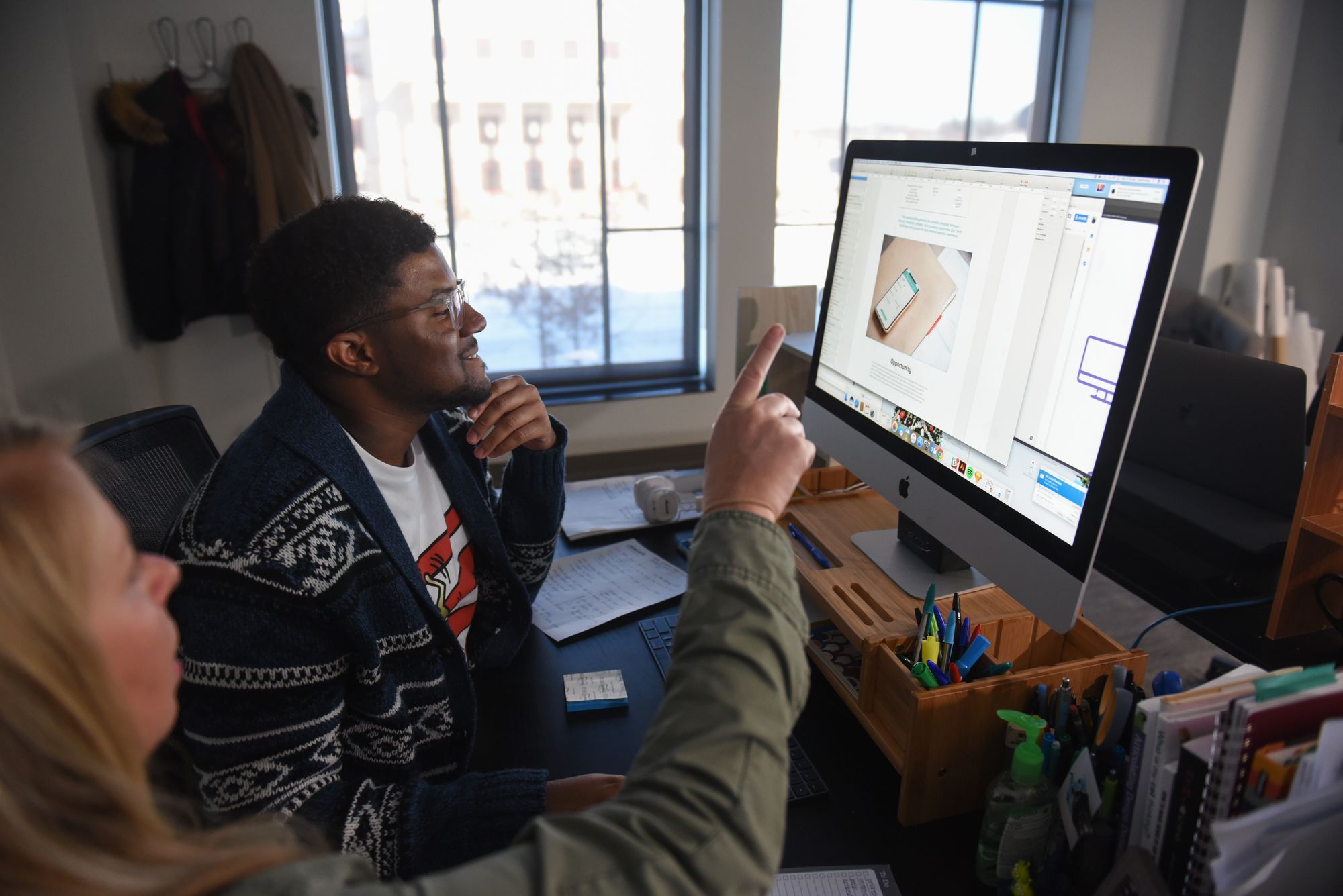Thinking about starting an internship program at your company? Already have interns and don’t know what to do with them? Here are our best tips to make your internship program successful (and enjoyable!) for both parties.

1. Define Success
A question we regularly ask ourselves here at SEP, whether we’re developing an app or planning a social event, is, “What does success look like?” We collaborate with everyone involved to answer this question. Clearly defining the outcomes needed to call a project done helps us all know exactly what we’re working toward.
When it comes to an internship program, defining success is critical. You need to define success for your internship program in two ways: success for the program as a whole and success for each individual intern.
Success for the program as a whole
What do you, the employer, want the outcome of your internship program to be? A pipeline of quality full-time candidates? An empty backlog? Increased brand recognition at the interns’ universities? Whatever combination of these outcomes you want, clearly define them and align the rest of the company around this picture of success.
Success for each individual intern
What does a successful intern look like? A contributing member of the team by the end of the summer? Your newest full-time hire? Determine the bigger picture of success and then break it down into attainable goals for your interns to work toward.
Say we want our interns to be independent contributors to their teams by the end of the summer. We can break down the steps to that larger goal like this:
- Get to know the rest of the team through one-on-one meetings.
- Learn the tools the team uses by taking intro courses to each tool you’re not familiar with and then completing one project in each tool.
- Meet the other individuals and teams you’ll collaborate with.
- Develop your own project idea and execute it.
When everyone involved (you, your team, your interns) agrees on what success looks like, you’ll be able to work toward it, day by day, throughout the summer.

2. Create an Intern Experience Team
We have a group called the Intern Experience Team here at SEP which focuses on, well, intern experience. This team coordinates logistics and communication to make the internship program successful for everyone involved.
The Intern Experience Team’s tasks include matching interns with project teams, providing each intern with a mentor, and hosting lunches where interns can meet each other, managers, and other SEPeers.
Gathering feedback from project teams during at the end of the summer is another key task of the Intern Experience Team. This meeting allows teams to give feedback on the overall internship program process so that we can continue to improve it.
These may seem like small details, but all together they make up the experience our interns (and teams) have.

3. Give and Receive Feedback
Feedback is another buzzword you’ll hear around SEP. When it comes to interns, both giving and receiving feedback come into play.
Give feedback
Our internship program is meant as much for our interns as it is for us. We want our interns to walk away at the end of the summer with more than simply 10 weeks’ worth of pay. We hope they also leave with valuable experience under their belts, a few shiny new resume bullets, and a network of mentors and peers.
One way we can help our interns prepare for their next challenge is giving them feedback. Whether it’s on project work, an interaction with a coworker, or the way they phrased an email, constructive feedback helps our interns leave better than they came.
Feedback isn’t limited to “areas for improvement,” either. It can also be a word of encouragement on how well an intern handled a tricky situation. Either way, thoughtful, constructive feedback lets your interns know that you care about their long-term growth.
Giving feedback can directly benefit our company and teams as well. Typically, good feedback improves the quality of an intern’s contribution to their team.
Receive feedback
On the flip side, you’ll also need to receive feedback.
Our interns complete an exit interview with HR during their last week with us. This input helps us adjust our internship program in for the next year. It helps us understand what to keep doing, what to stop doing, and what to start doing.
These interviews with HR also help us get honest feedback. A third party, someone outside the team, is a safe space for interns to explain how the summer went.

4. Make Interns a Part of the Team
As much as possible, we make interns part of their team for the summer. For us, this means they sit with their team, work on the same project as their team, and are treated like another member of the team. This allows them to get valuable real-world experience and helps us evaluate fit for potential full-time employment.
Real experience
Giving interns real work makes the experience worthwhile for them… and keeps them coming back. Joe Coy has become our patron saint of internships – because he interned with us five times before joining SEP full-time. Joe explained, “I come back to SEP because every internship has been unique and challenged me to grow in new ways.”
You’ll enjoy the experience more as well if your intern feels empowered to take initiative. It minimizes the need for hand-holding and gives you a new teammate with a fresh perspective on your work.
Better evaluation of fit
Allowing interns to do real, meaningful work is important – especially if you intend your internship program to function as a pipeline for full-time recruiting. If you want to fairly evaluate interns as potential new team members, let them do the work of a team member.
Consider the internship as a “try-out” of sorts for the full-time job – for both parties. You’re evaluating your interns, of course, but they’re also evaluating you. Giving interns real experience gives them a clearer picture of the work they could be doing someday, which allows them to make a good decision about joining (or not).

5. Make it Fun!
Ultimately, you and your interns will walk away from the summer happier if you enjoy your time together.
Consider this as you recruit your interns. Ask yourself, “Will this candidate be an enjoyable teammate?” Of course, technical qualifications take priority, but keep in mind that you’ll be spending 10 weeks with your intern – you might as well enjoy each other’s company.
Make time for fun during the summer. Get to know each other over team lunches. Take a field trip around the office and introduce your intern to people in other areas of the company. Invite your intern to company volunteer opportunities. You get the idea.

There’s no single formula for creating a successful internship program, but these tips should help you get started. Begin your experience remembering that, above all, intentionality is key, and don’t be afraid to make “fun” a part of your internship program success equation.

